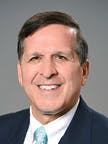Retirement: Ready or not?
Roger P. Levin, DDS
Retirement is a long way off . . . until it’s not. Then what?
Preparing for a successful retirement is a decades-long process. It takes commitment to a savings plan, focus on reaching goals, and expert help so that you can reach your objectives as quickly as possible. Over time, you’ll have to make adjustments to your plan because things change, including your goals, your life situation (e.g., marriage, children, elder care), your practice, and the economy.
Do you believe you will now have to delay retirement due to recent changes in the economy?
Yes: 35%
No: 65%
Unfortunately, more than a third of general practice owners (35%) said they are delaying their retirement due to changes in the economy, according to the latest Dental Economics–Levin Group Annual Practice Survey. While the overall economy appears to have bounced back from the post-2008 recession, the new dental economy is another matter for many in our profession. There’s more competition, fewer adult patients, and changing consumer notions about the need for twice-yearly hygiene appointments.
A significant portion of dentists—especially those in their 40s and 50s—are feeling the brunt of those changes. Yet many practice owners (65%) are doing well when it comes to being on target for retirement. Based on the survey response to retirement readiness, we decided to take a harder look at these two groups of practice owners.
On target for retirement vs. delayed retirement
More than three fourths of the “delayed retirement” group (77%) had been practicing 21 years or longer. However, the on-target group was only slightly below that, with 68% of them in practice for over two decades. The majority in both groups are midcareer, older dentists.
However, as you might suspect, there are some significant differences between the two groups in the areas of revenue, active patients, and stress:
The delayed group struggled last year, with only 38% saying they increased revenue in 2016 (table 1). This is significantly below the on-target group, 60% of whom grew production from the previous year. Similarly, the on-target dentists outpaced their counterparts by 20 percentage points (55% to 35%) in the category of doctors who increased active patients in 2016.
Not surprisingly, a much larger percentage of the delayed group (45%) was experiencing high or extremely high stress. If you’re increasing production and the number of active patients, you feel good about what you’re doing and where you’re headed. If your practice is struggling and you’ve been forced to delay retirement, you probably have stress up to your eyeballs. That’s a tough way to practice and a tough way to live. When you’re overly stressed, it’s hard to make good decisions. You can’t see things clearly because everything is filtered through the stress you’re experiencing.
Financial stress may be the worst kind of stress because it affects everything you do. And being unable to retire when you planned can make practicing seem like a life sentence, instead of an enjoyable livelihood.
Financial experts need not apply
One mistake that both groups made was the failure to use the services of a certified financial planner. For the delayed group, fewer than one-fifth of dentists (18%) availed themselves of a financial planner, which is extremely low. If you’re having trouble reaching your retirement goals, wouldn’t you want to speak to a retirement expert?
Meeting with a certified financial planner will force you to take inventory of all your financial assets. You may discover forgotten retirement accounts that move you closer to your goals. Of course, there’s always the possibility you could get bad news about investment choices. But it’s always better to know sooner rather than later.
The on-target group performed slightly better in this category, with 29% of dentists using a financial planner. To me, this is still a red flag. How can you be so certain you’re on target for retirement if you haven’t worked with a financial expert recently?
Conclusion
The two groups of practice owners, delayed and on-target retirement, had both obvious and expected differences. The practices of the on-target group enjoyed increases to revenue and active patients in far greater numbers, while experiencing far less stress than their counterparts. Yet, I would encourage all dentists—no matter what category they fall in—to work with a certified financial planner throughout their careers.
Author’s note: Need to increase revenue and reduce stress? Learn more about our consulting options by going to levingroup.com/consulting.
Roger P. Levin, DDS, is the founder and CEO of Levin Group, a leading dental consulting firm. A nationally recognized speaker, Dr. Levin presents practice management seminars throughout the country.


